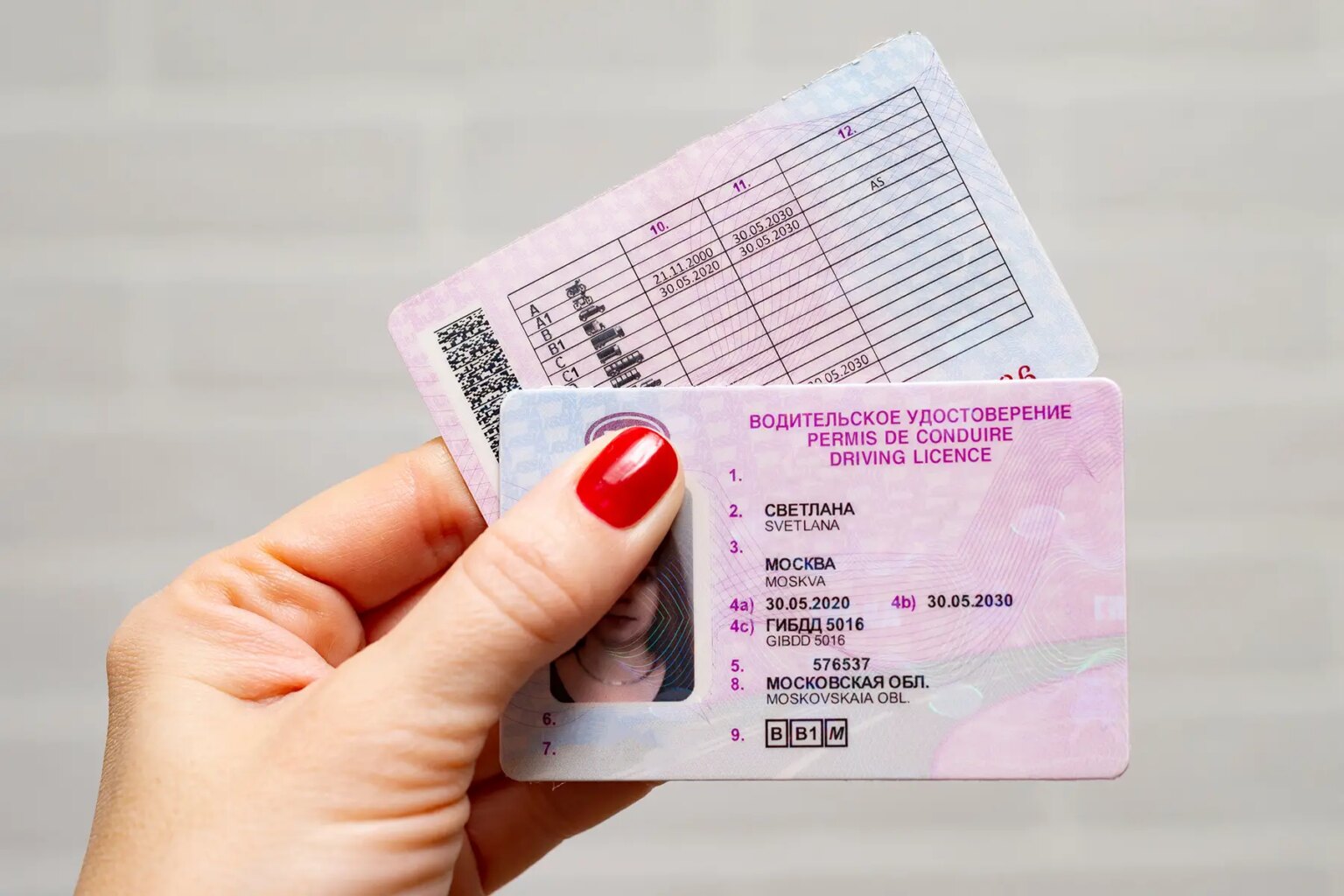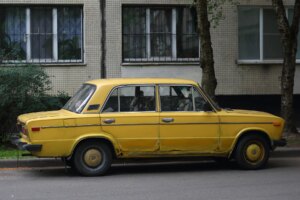Important notice from the Editor in Chief
Maintaining our Russian site is a delicate matter during the war. We have chosen to keep its content online to help our readers, but we cannot ensure that it is accurate and up to date. Our team endeavors to strike the right balance between giving information to those who need it, and respecting the gravity of the situation.
Do you need a Russian driving license? Are you going to be able to pass the driving test? Find out with this guide, which also explains requirements, laws, driving schools, and international driver’s licenses in Russia.
Read more about the following:
- Driving in Russia as a foreigner
- Can I use my driving license in Russia?
- Who needs a Russian driving license?
- How to exchange your driver’s license in Russia
- Driving lessons and Russian driving test
- The theoretical Russian driving exam and fees
- Getting your Russian driver’s license
- Driving schools in Russia
- Driving in Russia: requirements
- Importing a car to Russia
- Road signs and signals in Russia
- Useful resources
Driving in Russia as a foreigner
Exchanging your foreign driver’s license for a Russian driving license is a reasonably straightforward process in most cases. However, for some foreigners, getting a Russian driving license can be a long-winded process; if you’re moving permanently, you’ll need to take a theoretical driving test in Russian, even if you’ve already passed the test in another country, and in some cases a practical driving test as well.
Tourists and expats in Moscow can drive using their existing driving license for the first six months after arriving in Russia. However, if you are driving in Russia you must have your license translated and notarized by an official translator and it is advisable to also purchase an International Driving Permit (IDP).
If you are staying in the country beyond six months, you will be required to take a Russian driving test and get a Russian driving license. Like many other European countries, there are both theoretical and physical parts to the driving test in Russia. However, as long as your license is still valid in your home country, you can take only the theory test and not the physical driving test. Bear in mind that both are solely in the Russian language so you will need to speak some Russian.
Can I use my driving license in Russia?
If you’re older than 18 (for a car) or 16 (for a motorcycle), you can generally apply for a Russian driving license in Moscow. Different rules apply, however, depending on whether you’re visiting for a short-term or have moved to the country.
As the legal age for driving in Russia is 18 years, you will be unable to drive on Russian roads until that age. This is also the case even if you have a full license at a younger age in your home country.
Foreigners can drive in Russia using their license from home for up to six months, however, all foreign drivers need to additionally carry an International Driving Permit (IDP). An IDP is a translation of your license into nine languages, which must accompany your national license.
You can apply for an IDT up to three months before you travel, and the process is relatively straightforward. From the UK, you simply need to fill out a form online or via post, provide proof of your current driving license, and a passport photo, and pay a fee. You may also be asked to present a medical certificate, a form of identity, or proof of address.
Who needs a Russian driving license?
Once you’re in Russia, whether you need to exchange your foreign driving license depends on your residency status.
Temporary visitors won’t need to exchange their foreign driving license but will need to obtain an official Russian translation of it (which is what the IDP provides, for example). If pulled over while driving in Russia, you will need to show your license, the Russian translation (i.e., IDP) and an ID or passport.
If you hold a Russian work permit or resident visa, you must exchange your foreign driving license into a Russian driver’s license within 60 days after getting your residence permit.
Some exceptions exist, for example, diplomatic and consular workers and their families can be exempt from requiring a Russian driving test or medical certificate.
How to exchange your driver’s license in Russia
The steps involved in getting a Russian driving license requires include:
- driving lessons for a required amount of hours (usually 50 hours).
- a practical driving exam, driving on a test track and on city roads.
- a theoretical driving test (on a computer), with questions on road regulations; exams are at the State Road Traffic Safety Inspectorate (GIBDD, Mezrayony Otdel Gasudarstvenovo Tehnicheskovo Osmotra Registracy e Exzaminaciony Raboty).
If have already passed a practical driving test in your home country and if your country has an agreement or recognized conventions with Russia, you may be exempt from driving lessons and the practical exam. In such cases, you will only need to take an electronic Russian driving exam and then exchange your foreign driver’s license for a Russian one.
The multiple-choice, theoretical Russian driving test must be taken at a local branch of the State Road Traffic Safety Inspectorate (GIBDD).
The language barrier is the biggest stumbling block for English-speaking residents. All tests can are in Russian and you won’t be able to bring a translator along with you.
Driving lessons and Russian driving test
If you are required to pass a practical Russian driving test, your first step to getting a Russian driving license is to register for driving lessons. You must practice driving for a set amount of hours (usually 50 hours), between a period of two to six months.
Courses vary in length and cost, but it’s important to pick a provider that is registered with your local GIBDD. Many Russian driving schools offer packages to study for both the theoretical and practical Russian driving tests. In Moscow, you can find practice routes and test routes on the GIBDD website here. You’ll generally take your Russian driving test in the same areas you practice in.
You will need to complete two sections to pass your Russian driving exam: on a test track, usually taken at or near your driving school, as well as on public roads. The examiner may use trick questions or instructions, so you will need to know the correct place to drive or park.
The Russian driving test is stricter now. Previously, there were three exercises; now, drivers must complete five exercises (or six in a circuit or test track).
Some examples of exercises include:
- Reverse entry into a parking space
- Parallel parking
- Turn in confined spaces
- Turn 90 degrees
- Drive through crossroads
If you pass, with your certificate you can proceed to book the final part of the test, the theoretical exam.
An obstacle to the practical test for foreign drivers is that it’s not possible to take the test in English nor bring a translator during the examination. You could also try to pass the driving test in your home country before coming to Russia, meaning you may be required to only need to take the theoretical Russian driving test.
The theoretical Russian driving exam and fees
The theoretical Russian driving test consists of 20 multiple choice questions about traffic rules in Russia, and the requirements to pass were made stricter in 2017. You can make two mistakes, after which an additional five questions will be added. All five additional questions must be correct, otherwise it will result in a fail. You can find examples of questions from the Russian driving test here.
Book an appointment online or by visiting your local traffic police unit (see details and contacts here). You’ll receive an appointed time to take the Russian driving test, and directions on how to pay the necessary fees in advance.
The cost to issue your Russian driving license is around RUB 2,000. If you book and pay online or electronically, you may be granted a 30 percent discount (total fee RUB 1,400). Other fees may also be payable for the different parts of the driving test.
After passing the theoretical exam, you receive your Russian driving license that day. The whole testing process and receiving your license is typically an hour.
Getting your Russian driver’s license
If you pass the theoretical Russian driving test, you should be issued with a Russian driver’s license immediately at the test center. Driving licenses in Russia are provided in the form of plastic cards that look similar to an EU driving license.
The license expiry date will be the same as that on your residence permit. If your duration of residence is extended, you can have your Russian driving license’s expiry date extended at the GIBDD office for the same period without needing to take another Russian driving test.
When applying for a Russian driver’s license, the following documents are necessary:
- A completed application form
- Your passport
- Proof of passing a driving course
- A valid Russian residence permit
- A medical certificate from your doctor saying you are fit to drive
- A color photograph
- Your original foreign driving license
- A photocopy of your driving license with a notarized translation.
Driving schools in Russia
Courses and lessons are available from a number of authorized Russian driving schools and, provided it is registered with the GIBDD, you can opt for any driving school of your choice.
The driving courses generally last from around two to six months, although you will find a variety of services and fees. You can book a package costing around RUB 15,000–20,000 which includes lessons for both the theoretical and practical driving exams.
The government provides a list of registered driving schools in Moscow here; you can find driving schools in every region by changing the area on the website.
Driving in Russia: requirements
Required documents when driving in Russia
Due to random vehicle inspections by the road police (GIBDD, formerly GAI), it’s important to carry all of the appropriate documents when driving in Russia.
If you fail to produce any of the following when asked, you could face an on-the-spot fine:
- Foreign driving license or Russian driving license
- International driving permit
- Proof of insurance
- Proof of vehicle ownership
- Vehicle inspection card (if applicable)
According to Russian driving requirements, you’ll also need to carry several items designed to improve road safety, including:
- Warning triangle
- First-aid kit
- Fire extinguisher
- Headlight beam deflectors
- Spare light bulbs
Russian driving laws
Driving in Russia is on the right side of the road. The driver and all passengers must wear seatbelts, and children younger than 12 years cannot travel in the front of the car unless in a child seat. Using a mobile phone while driving in Russia is illegal if you don’t have a hands-free kit, as is driving a dirty car (especially if the license plate is obscured).
Speed limits for driving in Russia
The general speed limits for motorcyles and cars in Russia under 3.5 tonnes are:
- Built-up areas – 60km/h
- Expressways – 110km/h
- Other roads – 110km/h
- Sign-posted residential areas – 20km/h.
The speed limits for larger cars in Russia and vehicles with trailers are:
- Built-up areas – 60km/h
- Expressways – 90km/h
- Other roads – 70km/h
- Sign-posted residential areas – 20km/h.
Driving and drinking laws in Russia
Russia operates a zero-tolerance attitude to drunk driving and you could face a jail term if found guilty. If you’re stopped and are found to be over the limit, you’ll need to give a blood sample for further investigation.
The strict Russian road rules surrounding drunk driving also apply to drugs. In Moscow, police are piloting saliva tests for drivers suspected of taking narcotics, and this could be extended throughout the country if successful.
Importing a car to Russia
Unless you’re a foreign diplomat, import taxes and customs clearance charges can be steep when importing a car to Russia. Bearing this in mind, in some cases it may be more sensible to buy a car in Russia once you arrive. You can find out more about buying and registering cars in Russia in our guide to parking and driving in Russia.
Road signs and signals in Russia
You can find information about the different types of road signs in Russia here.
Useful resources
- www.gibdd.ru
- Russian driving test examples
- Government list of registered driving schools in Moscow




